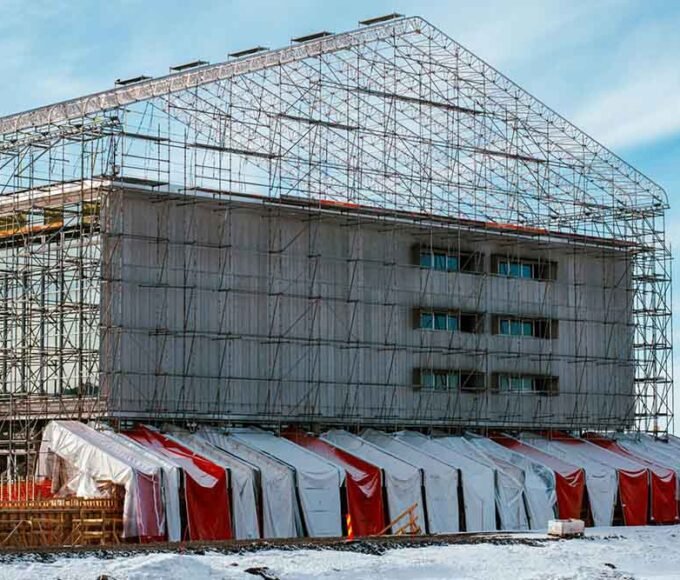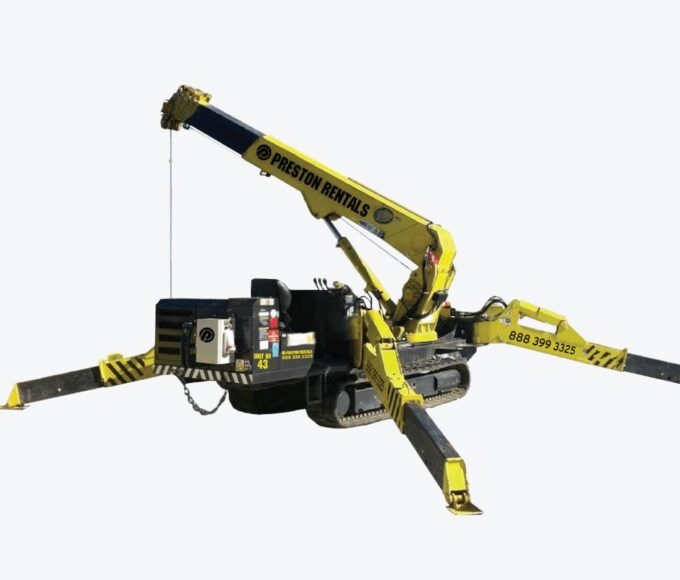The construction industry has traditionally been slow to adopt new technologies. It has often relied on established methods that have stood the test of time.
However, the winds of change are blowing. We are now witnessing an era of unprecedented innovation. From futuristic materials to cutting-edge techniques, tomorrow is being shaped today.
This transformation brings both challenges and exciting opportunities. So let’s explore the leading trends that are set to redefine the construction services industry over the next decade.
The Rise of Innovative Materials and Technologies
One of the key drivers of change in the construction industry is the emergence of new materials and technologies. These advancements are not only improving the efficiency and speed of construction. They are also enhancing sustainability and durability.
3D Printing
3D printing is also known as additive manufacturing. It is revolutionizing the way we build structures. It involves creating three-dimensional objects by layering materials on top of each other.
3D printing offers unprecedented flexibility in terms of design and customization. It also reduces waste and material costs. This makes it a more sustainable option.
Modular Construction
Modular construction involves building individual sections or modules offsite. And then, they get assembled onsite.
This method allows for faster construction times. It pushes for improved quality control. It also minimizes waste and disruption to the surrounding environment.
High-Performance Concrete
High-performance concrete is a new type of concrete. It has higher strength, durability, and longevity than traditional concrete. It can handle heavier loads and resist corrosion better.
This makes it ideal for building taller structures and bridges. It also reduces the need for frequent maintenance. This makes it more cost-effective in the long run.
New Equipment and Tools
Along with new materials, we are also seeing the development of innovative equipment and tools. These are making construction sites safer and more efficient.
For example, cables are becoming thinner and lighter, thanks to carbon fiber technology. Construction equipment is adapting to the changing demands of the industry. They are becoming more precise, automated, and eco-friendly.
The Shift Towards Sustainability
Sustainability has become a major focus in the construction industry. This is due to rising concerns about the environmental impact of construction. There is now a need for more energy-efficient structures.
Green Building Certification
Green building certification programs have gained popularity over recent years. They provide standards for sustainable building design, construction, and operation.
These programs also offer incentives. They reward builders who incorporate sustainable practices and materials into their projects.
Energy-Efficient Technologies
The demand for energy-efficient technologies in the construction industry is increasing. This includes:
- solar panels
- geothermal heating
- hydropower
- smart home systems
- energy-efficient lighting
- rainwater harvesting
These technologies not only reduce carbon emissions but also save on long-term energy costs. They are also becoming more affordable and accessible. So they are becoming a viable option for construction projects.
The Power of Data and Automation
The rise of innovative technologies in the construction industry has also brought about an influx of data. This data is being used to streamline processes. It increases efficiency. It improves decision-making.
Building Information Modeling (BIM)
BIM is a digital representation of a building. It includes the following:
- architectural plans
- structural plans
- electrical systems
- mechanical systems
- plumbing systems
- cost estimations
- schedules
BIM allows for better collaboration between different parties involved in construction projects. It also helps to identify and solve potential issues before they arise.
Construction Management Software
Construction management software is becoming an essential tool for local construction companies. These programs automate tasks such as:
- scheduling
- budgeting
- project tracking
- document management
- communication
They help to reduce errors and delays. They also improve communication and transparency among project stakeholders.
This not only saves time but also reduces the risk of human error. It also provides real-time data, allowing for better decision-making.
The Growing Importance of Safety and Quality Control
Innovative materials and technologies are also bringing about new safety concerns. As such, there is a growing emphasis on implementing strict safety measures. Quality control processes are now more important than ever.
Drones for Inspection
Drones are being used for various tasks in the construction industry, including inspection. They can quickly survey hard-to-reach areas without putting workers at risk.
Using drones for inspection also allows for more accurate data collection. This can lead to better quality control and fewer construction errors.
Virtual Reality Training
Virtual reality (VR) is being used in the construction industry for safety training. It simulates real-life scenarios. It allows workers to practice safety procedures in a controlled environment.
This not only improves safety. It also reduces costs associated with in-person training and potential accidents. It also allows for better retention of training materials.
Outsourcing and Collaboration in a Globalized Industry
The construction industry is becoming increasingly globalized. This has led to the rise of outsourcing construction consulting services. It has led to global collaborations
Increased Access to Skilled Labor
By outsourcing, construction companies can access skilled labor from around the world. This helps to fill any skill gaps within their local workforce.
It also allows for the exchange of knowledge and ideas. This can lead to more innovative and efficient construction techniques.
Cross-Cultural Collaboration
Collaborating with global partners also opens doors for cross-cultural learning. It allows for the sharing of best practices and experiences from different markets.
This can help to promote diversity and inclusivity in the industry. This leads to a more well-rounded approach to construction projects.
Social Media and Digital Marketing for Construction Companies
Social media has also become a powerful tool for marketing. It has become a tool for promotion in the industry.
Companies are using platforms such as LinkedIn, Instagram, and Twitter. These are where they showcase their projects, expertise, and company culture.
A construction website is also a valuable digital marketing tool. A construction company website allows potential clients to learn more about the company. It can contain information about the company’s services, projects, and values.
Construction Services Are Transforming
The construction services industry is evolving rapidly. It is embracing new technologies, sustainability, safety, and collaboration. This has resulted in more efficient and innovative construction processes.
As the industry continues to evolve, it will be essential for construction companies to adapt. They must stay ahead of the curve by implementing these leading trends into their projects.
Did you find this article helpful? If so, check out the rest of our site for more.
















